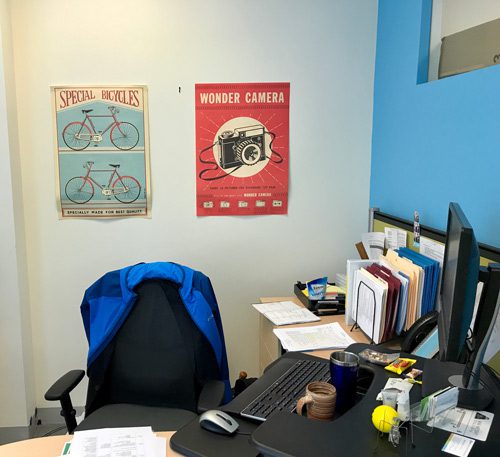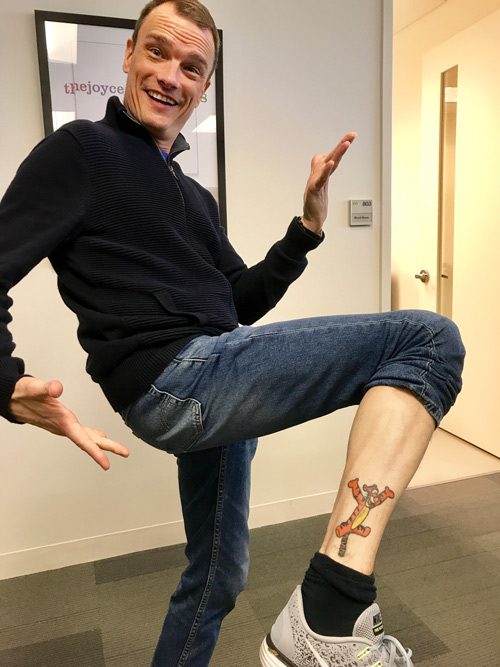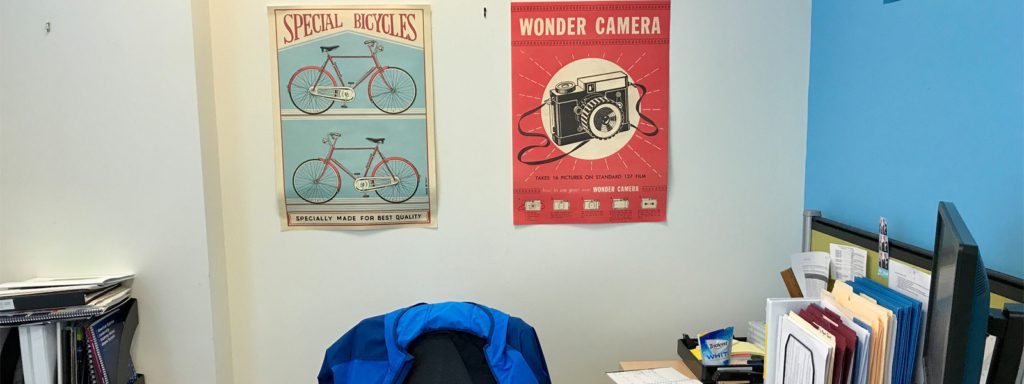Inside 16th & L is our bi-weekly blog series showcasing the Independent Sector team here at the corner of 16th and L Streets in Washington, DC. Find out who we are, where we’re from, what we do, and what drives us. This week, Inside 16th & L introduces Troy Adkins, our director of networks and member engagement with an interview from Friday, April 21.

Networks & Member Engagement in Troy’s words…
The Networks & Member Engagement team oversees membership functions, including bringing in and welcoming new members, onboarding them for a few months, and introducing them to colleagues and programs in other areas of the organization. We also work with anybody who has questions about IS and how they might get engaged, and also try to push people to new opportunities to engage both in-person and online with IS. Visit our membership page to learn more about IS membership.
Troy’s hometown is:
Birmingham, AL
Troy is a…
 Designer – One of our instructors at Civilla told us that you are a designer when you say you are a designer, and I thought, “That’s a crock,” because I’ve worked with architects and interior designers who have earned degrees and taken exams and proven to states where they’re licensed that they’re competent. But the more I thought about it, I realized that most people who are interested in other people are designers because the biggest phase of the design process is empathy-building. And so, at a dinner on our last day in Detroit, when I was asked to say who I was and what I did at IS, I said, “I’m Troy and I’m a designer.”
Designer – One of our instructors at Civilla told us that you are a designer when you say you are a designer, and I thought, “That’s a crock,” because I’ve worked with architects and interior designers who have earned degrees and taken exams and proven to states where they’re licensed that they’re competent. But the more I thought about it, I realized that most people who are interested in other people are designers because the biggest phase of the design process is empathy-building. And so, at a dinner on our last day in Detroit, when I was asked to say who I was and what I did at IS, I said, “I’m Troy and I’m a designer.”
Triathlete – I was outed by Pickett who noted on Civilla’s podcast that I’m training for a triathlon, so they called me a triathlete. At the time, I was like, “But I’m not! I haven’t done one.” In my mind, you were a triathlete-in-training until you had completed the race. But since, I’ve slowly begun saying I’m a triathlete.
Troy is not a…
Black belt…but he is a yellow belt. – I am a yellow belt in Tai Kwon Do. I’m way too pacifist, so when I got to the point where I had to have hand-to-hand combat experience to get the next color belt, I just stopped because I can’t hit people.
How and why did you end up in your current role at IS?
I was in a professional association before this and I loved the people that I met, but wanted to work at a mission-driven organization again. So I started looking around at what mission most-resonated with me, and it’s tough because there are about five or so causes that I really get behind and choosing one felt like being asked to choose my favorite child. This job ran across my radar, and I thought, “Well, the work they do helps ALL nonprofits work more effectively, so why wouldn’t I want to work there?” So I applied, and that was followed by a really rigorous interview process that involved multiple stages. And the minute that I interviewed with my then-boss, I knew I really liked her thinking and wanted to work with her specifically.
What’s the first thing you do when you get into the office?
After I get a cup of coffee, I structure my day around this notion that there are innate limits to human bandwidth. The more decisions you make throughout your day, the more you diminish this wellspring that doesn’t quickly refill. So you have to pace yourself. If I know that I have writing projects, I like to do that fresh. Along with writing projects, any sort of project that’s going to require thought-planning: I noodle on them for days beforehand, then I really set to work on them in the mornings.
What was your most rewarding and/or memorable experience at IS?
I have two. My most recent was my month-long immersion at Civilla in Detroit. I came back with a skillset and an understanding of a methodology that I’ve actually loved since the originators of human-centered design first hit the mainstream. So getting to go through this, and learn it, and come back with that skillset has been really rewarding. The memorable part was being in Detroit: You get thrown out of your comfort zone in every respect and fend for yourself in a place where you don’t know anybody. The other rewarding experience for me was spending my first two years here working with Erica Greeley. She’s since left, but on multiple occasions, I told her she was one of the best, if not the best, supervisor that I’ve ever had.

What’s your guilty pleasure?
Whole Foods sells these carrot cake balls. First off, the Whole Foods carrot cake is a Work. Of. Art. I hate cream cheese frosting anywhere in life except on a Whole Foods carrot cake. Holy Lord!
In the Harry Potter series, there is a charm called a patronus that a person uses to conjure positive feelings from their happiest memories as a protection against evil beings that prey on human souls. What is your patronus and what happy memory do you use to cast it?
Tigger is my patronus. The first tattoo I got is actually Tigger propped on his tail and ready to bounce on my ankle. Because I bounce. In every aspect—mentally, physically, I bounce. I don’t necessarily use one memory to cast it. A perfect example is yesterday was my mom’s birthday, the day before that was my cousin’s birthday, and two days before that was my grandmother’s birthday—all on my mom’s side. And there was photo that popped up on Facebook from four years ago where I’d flown home to surprise my mom for her birthday party and got all three generations of those sassy, strong women in a picture, wearing birthday crowns. That’s one memory that I use. There are others with current friends and chosen family here in DC that I don’t even need photos for. You just have that sense of how happy, how well you fit, and how much you belong with that group.
More fun facts
- Outside of Alabama, Troy has only met one person who shares his alma mater (Birmingham-Southern). Incidentally, that someone is his colleague Allison Grayson.
- Troy took speech and diction classes in college to reduce his Southern drawl, but has since decided that was a mistake.
- In 2015, Troy read 52 books. In 2016, he read 57 books. He is currently reading a hard copy of the Association Law Handbook (not for pleasure), and audio-booking a Tana French novel (for pleasure).
- Troy mentioned that he was attracted to IS because it advocates for groups working on many different causes. Some of the causes Troy cares most about are youth development, Special Olympics, art therapy, LGBT issues, and cross-issue community-building.



